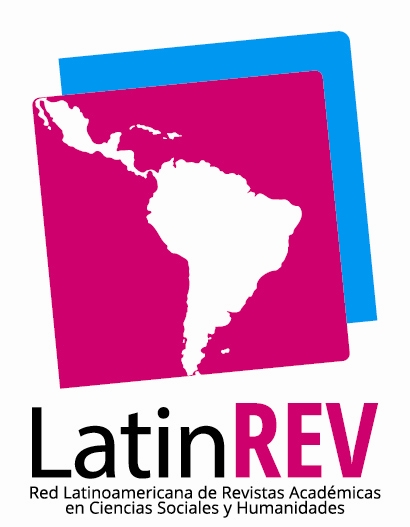Agreements and disagreements with teenagers. Reflections on the experiences in the course of Psychology, of the UNLPam
Keywords:
device, subjectivities, adolescents, teachers, transferential linkAbstract
To build and offer space, a more habitable territory, that admits the word, the communication and the movement of the body, be comes powerful in proposals destined to schooled Young people. From the course of Psychology of the Department of Teacher Training of the Faculty of Human Sciences of the UNLPam, we worked with an intervention device, aimed at students who attended a secondary school in the city of Santa Rosa. The instrument allowed to approach the transferential link, through individual and group interventions that favored the beginning of certain movements and changes in the subjective position of students and teachers. Addressing human relations and the transferential, which is part of the school bond between adults and Young people, helps to think about the irruptions and dis conforts that are presented today in the different school scenes; a situation that leads us to bring up, as a team, various questions, some of which are presented in this work. The different scenes presented in this artic leal low us to think how the hospitality offered by an adult favours the appearance of positive transfers in school work and how, faced with situations of hostility, the bond deteriorates and favours indifference and aggression.
Downloads
References
Aircchorn, A. (2006). Juventud desamparada (1925). Barcelona, España: Gedisa editorial.
Bernfeld, S. (2005). La ética del chocolate. Aplicaciones del psicoanálisis en Educación Social. Barcelona, España: Gedisa editorial.
Brignoni, S. (2011). Una experiencia de conversación entre psicoanálisis y prácticas socioeducativas: de la gestión del usuario a la producción del sujeto. Clase Nº 5. Curso de posgrado Diplomatura en Psicoanálisis y prácticas socio-educativas. Buenos Aires, Argentina: FLACSO Virtual.
Follari, R. (1997). Psicoanálisis y sociedad: crítica al dispositivo pedagógico. Buenos Aires, Argentina: Lugar editorial.
García Arzeno, M. E. (1995). El educador como modelo de identificación. Buenos Aires, Argentina: Tekné.
Korinfeld, D.; Levy, D. y Rascovan, S. (2013). Entre adolescentes y adultos en la escuela. Puntuaciones de época, Buenos Aires, Argentina: Paidós.
Nasio, J. D. (2011). ¿Cómo actuar con un adolescente difícil? Consejo para padres y profesionales. Buenos Aires, Argentina: Paidós.
Nuñez, V. (2005). “El vínculo educativo”, en Tizio, H. (Coord). Reinventar el vínculo educativo. Aportaciones de la pedagogía Social y del psicoanálisis (19-47). Barcelona, España: Gedisa editorial.
Quiroga, S. (2005). Adolescencia: del goce orgánico al hallazgo de objeto. Buenos Aires, Argentina: EUDEBA.
Rodulfo, R. (2004). El psicoanálisis de nuevo. Elementos para la deconstrucción del psicoanálisis tradicional. Buenos Aires, Argentina: EUDEBA.
Rother de Hornstein, M. C. (2006). “Entre desencantos, apremios e ilusiones. Barajar y dar de vuelta”, en Rother de Hornstein, M. C. (comp). Adolescencias: trayectorias y turbulentas (117-135). Buenos Aires, Argentina: Paidós.
Tizio, H. (2005). Reinventar el vínculo educativo: aportaciones de la Pedagogía Social y del Psicoanálisis. Barcelona, España: Gedisa.
Zelmanovich, P. (2003). “Contra el desamparo”, en Dussel, I y Finocchio, S. Enseñar hoy. Una introducción a la educación en tiempos de crisis (49-64). Buenos Aires, Argentina: Fondo de cultura económica.
Zelmanovich, P. (2008). “Hacia una experiencia intergeneracional”, en Tiramonti y Montes (Comp). La escuela media en debate. Problemas actuales y perspectivas desde la investigación. (pp.141-151). Buenos Aires, Argentina: Manantial/FLACSO.
Downloads
Published
Issue
Section
ARK
License
Copyright (c) 2019 Juan Franco

This work is licensed under a Creative Commons Attribution 4.0 International License.






